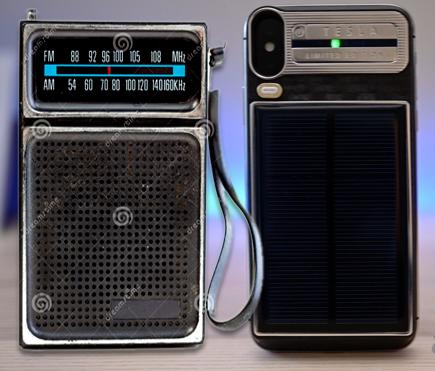larz2112
About
- Username
- larz2112
- Joined
- Visits
- 125
- Last Active
- Roles
- member
- Points
- 355
- Badges
- 1
- Posts
- 291
Reactions
-
Review: Caviar's luxury $4,600 iPhone has more gold than purpose
-
Testing thermal throttling and performance in the 2018 i7 Mac mini
-
Four new Macs spotted in Eurasian regulatory filings
maltz said:techprod1gy said:
You must be oldhodar said:Please, for the love of God - let the new Mac Mini's allow users to add RAM and internal drives.
Soldering down the RAM, means that I'll continue using my 2012 Mac Mini's with 16 GB RAM, and my homemade Fusion Drive. I will not buy a hamstrung Mac Mini, I will find myself FORCED to go back to Windows (and I don't want to do that).You must not pay for your own gear.The last few Macs I bought personally, back when things were slightly more customizable, I found it was significantly cheaper to buy the Mac with minimum specs and actually throw away the RAM/HD they came with and replace them than it was to pay Apple's ridiculous prices on RAM and HD upgrades. And I think the situation is even worse now, except nothing is replaceable, so you just get to pay what Apple says.I agree. I don't know why people think it is so unreasonable or antiquated to prefer to have the option to upgrade the RAM and hard drive in a computer that you bought and have owned for 2-3 years in order to improve performance and extend the life of the system. Case in point:I have a late 2012 dual core i5 Mac mini. In 2014 I was hoping to replace it with one of the new systems, but like many, I was underwhelmed, especially since Apple got rid of the quad-core option, and the benchmarks were no better, and in some cases worse than the 2012 models. So I continued to use my 2012 i5 Mac mini. In 2016 I came close to buying a used or refurbished 2012 quad-core i7 Mac mini, but I kept assumming Apple would refresh the mini soon and I should wait. Instead, I increased the RAM and replaced the hard drive with an SSD drive. This improved the performance, allowed me to keep up with new software requirements, and extended the life and usability of the comptuer. That would not have been possible if the hard drive and/or RAM was soldered in place, or the system had a T2 security chip that which made it impossible to perform relatively simple upgrades myself.I really don't think it is unreasonable at all to want or expect to be able to perform relatively simple upgrades to YOUR computer to improve performance and extend the usability after you have owned it 2-3 years. It has been, and current is possible with the vast majority of computers, including many Apple computers.And here's the thing. If Apple makes it possible for end-users to upgrade hard drives and RAM, then everyone is happy. Those who don't want to be bothered with upgrades can pay upfront to upgrade their system when they buy it from Apple. Those who prefer to upgrade their systems on their own can still do so down the road. But if Apple makes it impossible for end-users to upgrade their systems after purchase, then they are alienating and possibly losing a segment of their customer base. Maybe that's a tradeoff they are willing to make in order to reduce repairs, and force customers to pay inflated prices for upgrades at the time of purchase.
-
Unicode's Emoji 12.0 candidates for iOS 13 include more skin tone combos & handicap option...
-
Apple repair policy critic vows to fight 'counterfeit' battery seizure by U.S. customs
The hate is swelling in you now. Good. I can feel your anger.magman1979 said:
Having been in IT for 20+ years, being ACSP certified, knowing a LOT more about Apple products internally than most, and being able to recognize a petulant YouTuber smart ass, I think not...larz2112 said:
You will find that it is you who are mistaken, about a great many things.magman1979 said:
You win for most ignorant comment of the day, congratulations...larz2112 said:This is how I feel about Apple's repair policy and general strategy of creating an ecosystem based on serfdom.
Now put a T2 chip in my next Apple computer, giving me little or no upgrade or repair options other than Apple at inflated prices, and your journey will be complete!





